When Joy Comes With Terms and Conditions
For disabled music lovers, getting to a concert takes more than a ticket — it takes grit, planning, and luck. It's a test of endurance long before the music starts.
Note: I’ve included a few photos from past concerts at various Toronto venues to demonstrate what accessibility can make possible. These are genuine moments I had the opportunity to experience—because I persisted.
Live music is one of the few joys that still feels like mine—something my body hasn’t taken away. Concerts are one of the rare places where my disabled self and my former able-bodied self can coexist without grief. Even if I can no longer dance, I can still lose myself in the music. In those moments, I feel alive. I feel normal. It’s therapeutic. Enjoying music is a universal experience, but the act of attending as someone with a disability is a different story. It’s not just difficult, it can be almost impossible.
What most people experience as spontaneous fun or an effortless escape often takes meticulous planning for me. The exhausting reality of securing accessible tickets or finding a barrier-free venue constantly reminds me: the hardest part of being disabled isn’t my diagnosis—it’s everything I have to fight through just to show up.
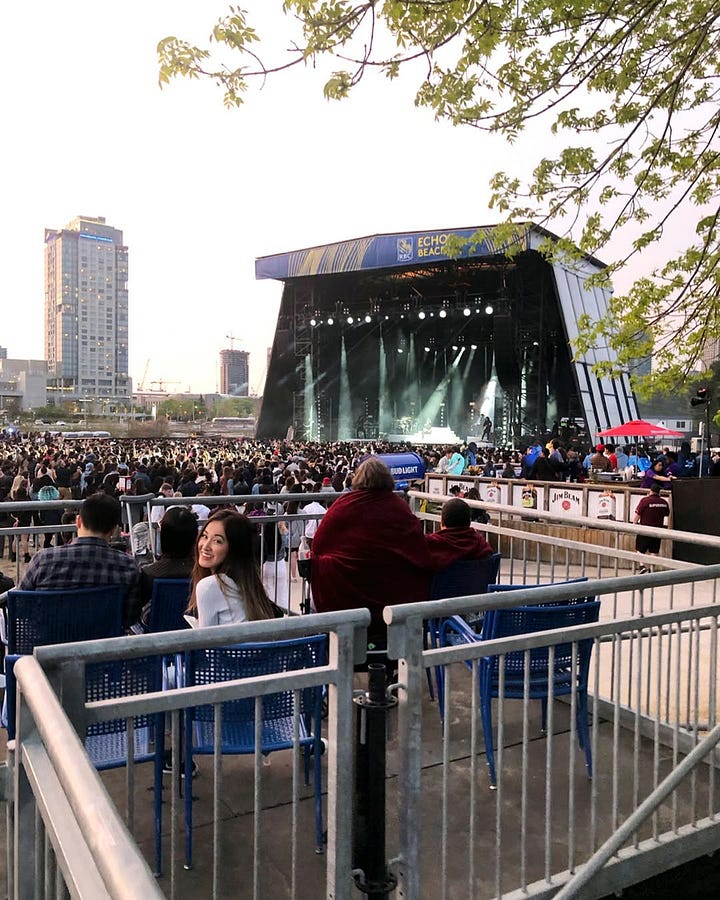
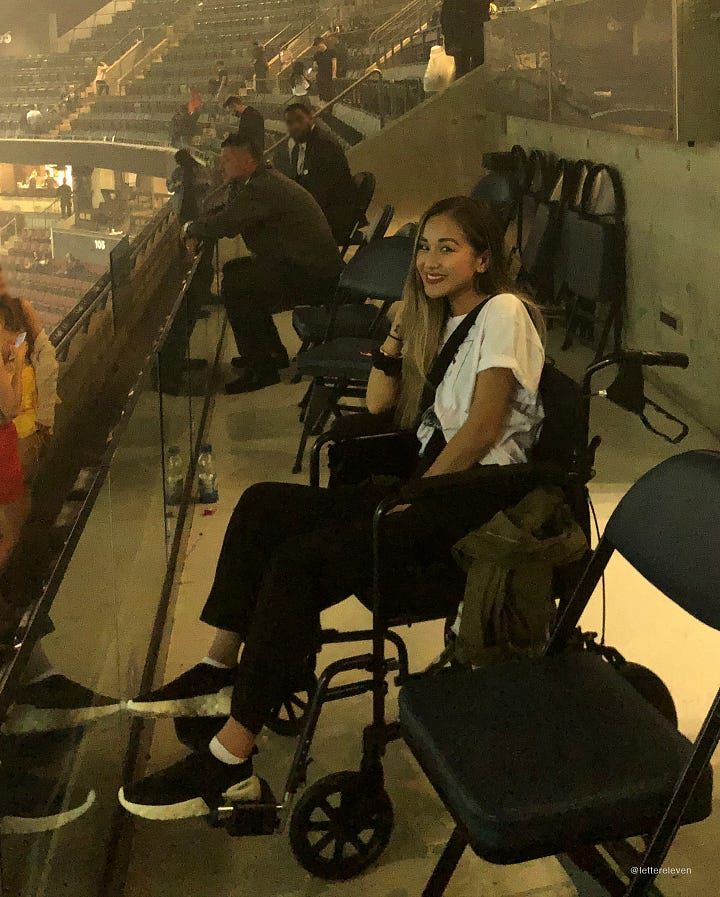
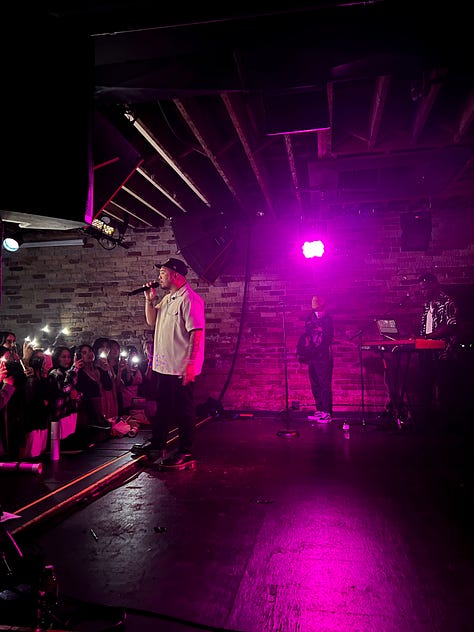
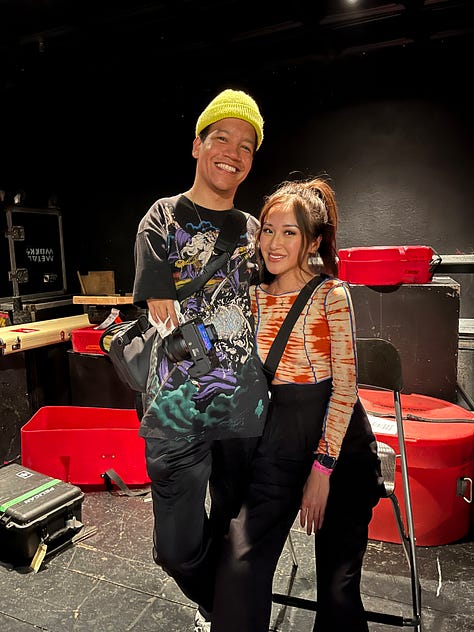
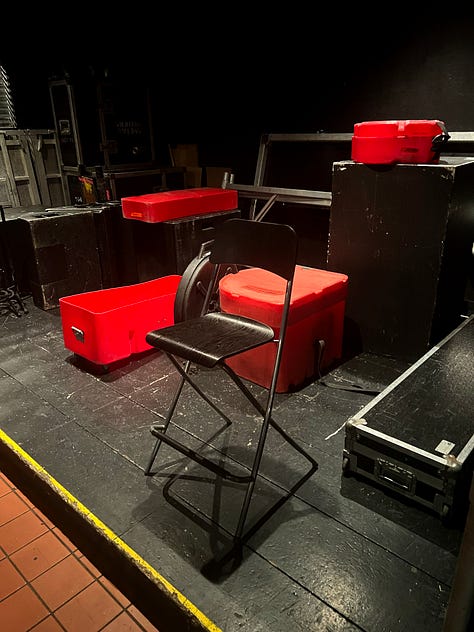
I’ve noticed accessible seating is often unfairly priced, just because it’s at the front. I never chose that spot. My body did. It’s frustrating because if I had the option, I’d gladly sit in the back (or anywhere, really) if my body didn’t require accommodations.
All these worries run through my mind before I can even commit to going:
Who can accompany me? How will I get there? Will Wheel-Trans drop me off on time? Is there accessible parking? Will there be ramps or elevators? Will my friends be allowed to sit with me in the accessible section? Will security treat me with respect or as a hindrance? Will I be able to navigate to my seat safely, or will people trample over me because I’m out of their line of sight? (True story). Will I even be able to see from the so-called “accessible” section? Will the bathroom be usable—or even open?
And will my wheelchair battery even last the night?
These aren’t extras. They’re the bare minimum just to show up.
Still, I try to go because these moments of music, presence, and joy are worth fighting for, but they shouldn’t be this hard to reach. I’ve missed so many shows I would’ve loved to attend, but was denied access to the enjoyment of goods and services offered by venues and promoters—experiences that should be available to all ticket holders, including disabled ones.
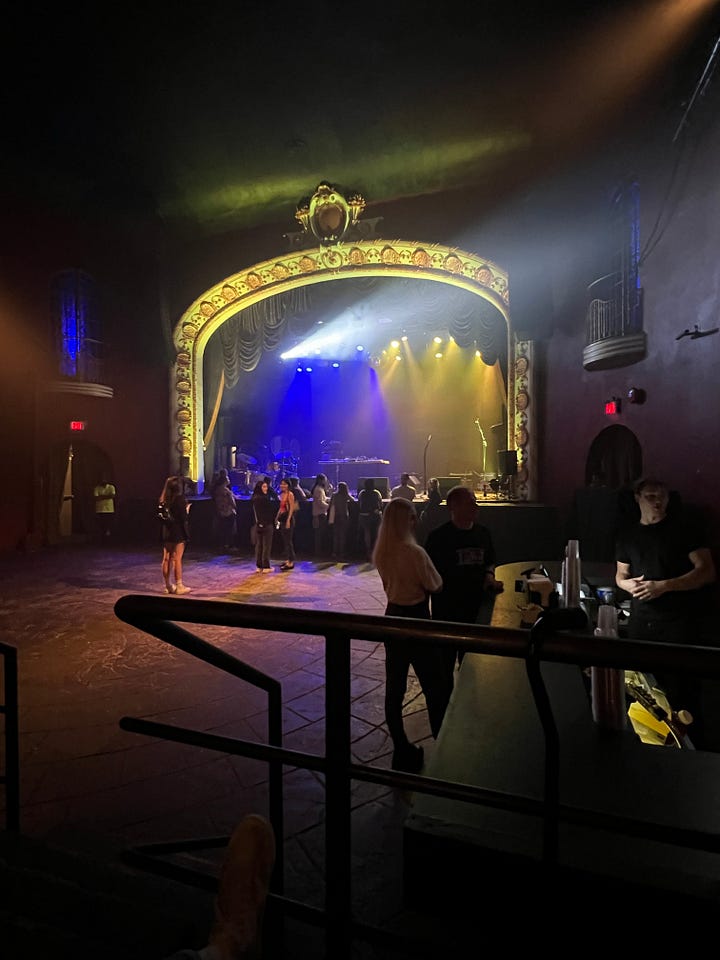
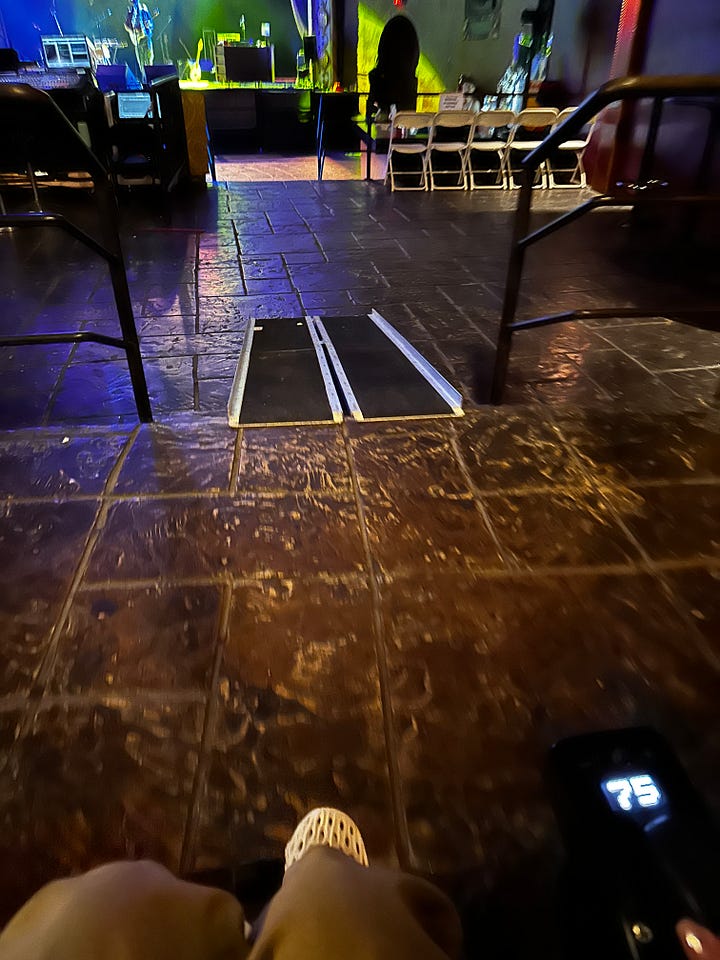
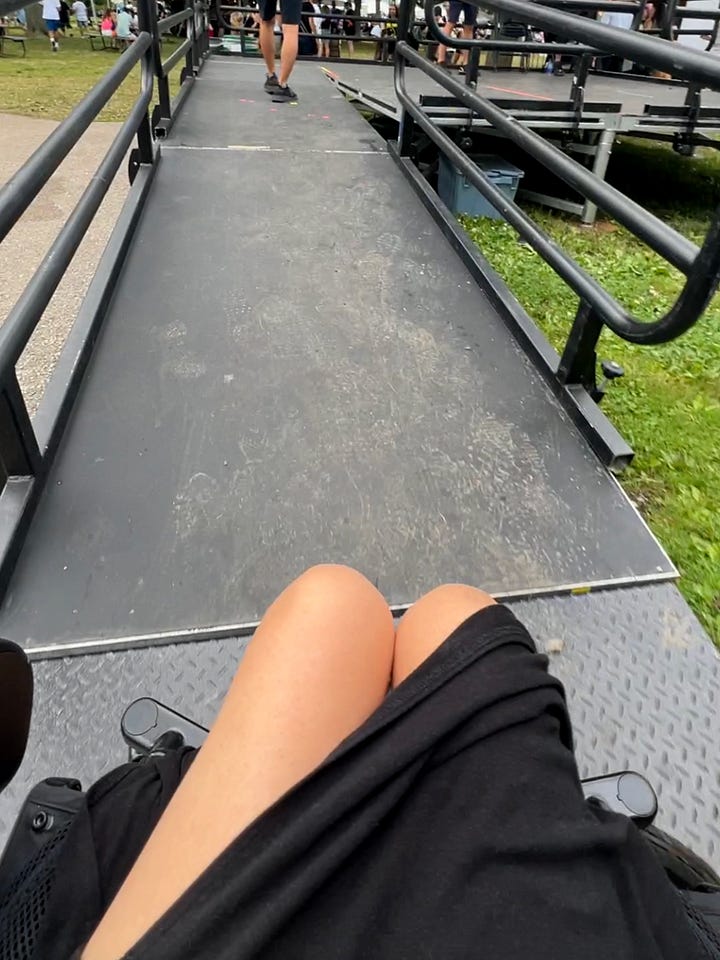
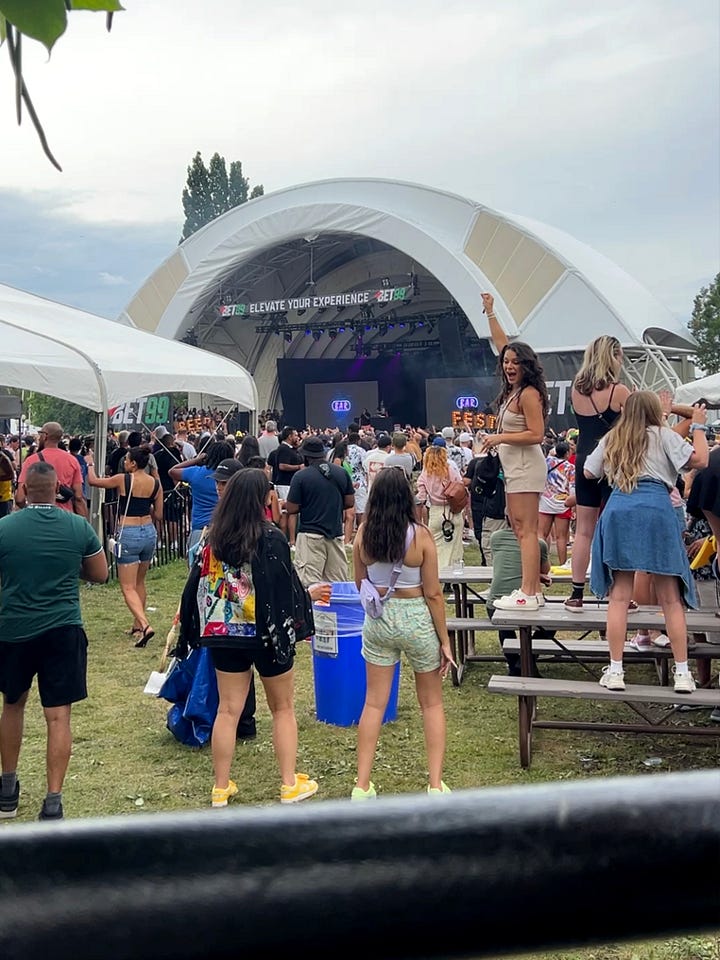
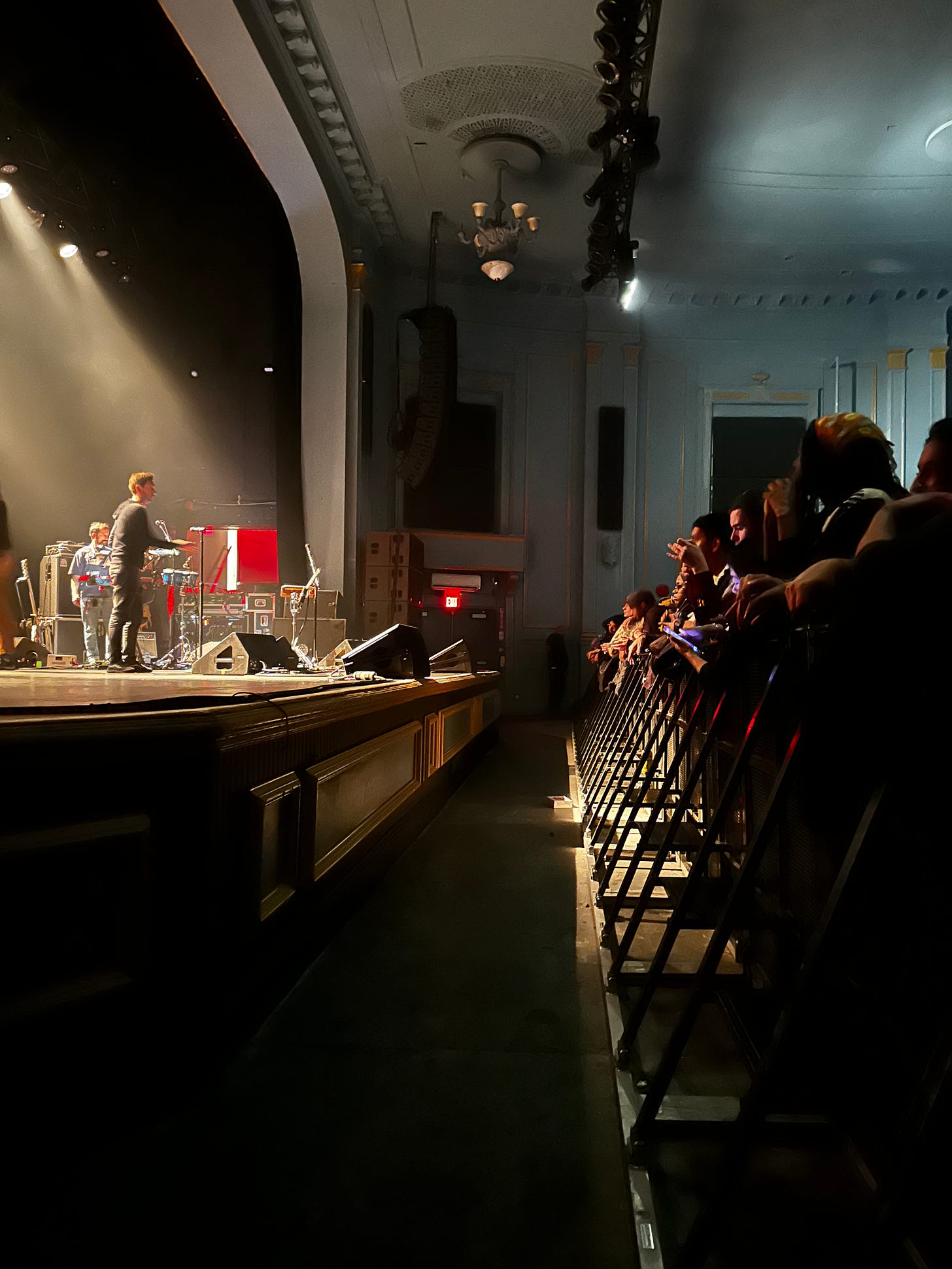
Whenever I see an artist or show I want to attend, I have to mentally prepare for an uphill battle, which is comparable to trying to win a contest. The drill goes like this: see a touring artist I like, look up the venue, study their seating chart, check their accessibility, wait in queue for presale or wake up early on general public days, find the contact info for the venue or Ticketmaster (which are notoriously known for being no help), then call and/or email them while I’m trying to secure accessible tickets online.
Sometimes it takes a lot of pleading. Sometimes it means making multiple phone calls or exchanging countless emails. If I’m lucky, there’s a creative solution, usually if the customer service rep is experienced or happens to be in a good mood. Otherwise, I hit a dead end, and I don’t get to go. I don’t have the luxury of spontaneously buying whatever ticket I can get my hands on. I need very specific ones.
It shouldn’t have to be like this. I’m not asking for a VIP experience—just a ticket that guarantees I can be there safely, comfortably, equally. A place to exist. That’s it.
What should be a few clicks always turns into a drawn-out, draining ritual, one that takes far more time and energy trying to get accessible tickets than I know the average able-bodied person spends. Each call can chip away at my excitement for the event. Each ‘please hold’ reminds me how often disabled people are expected to earn their access, as if it’s a privilege, not a right. It’s exhausting and frustrating, but a tremendous feat if everything works out—until the day of the event, and the prayers begin again.
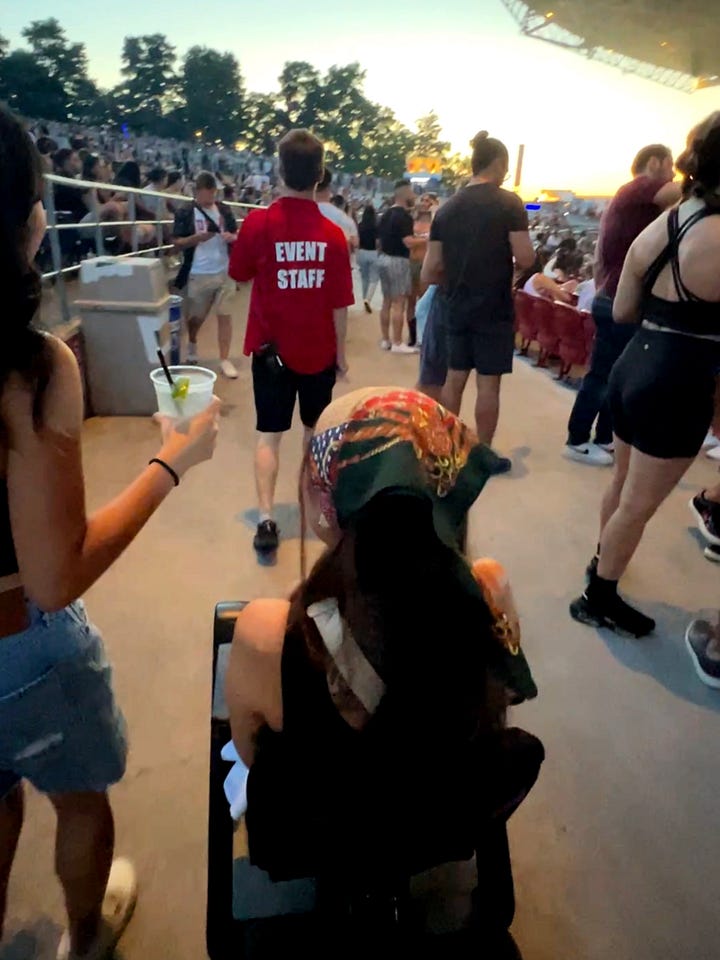
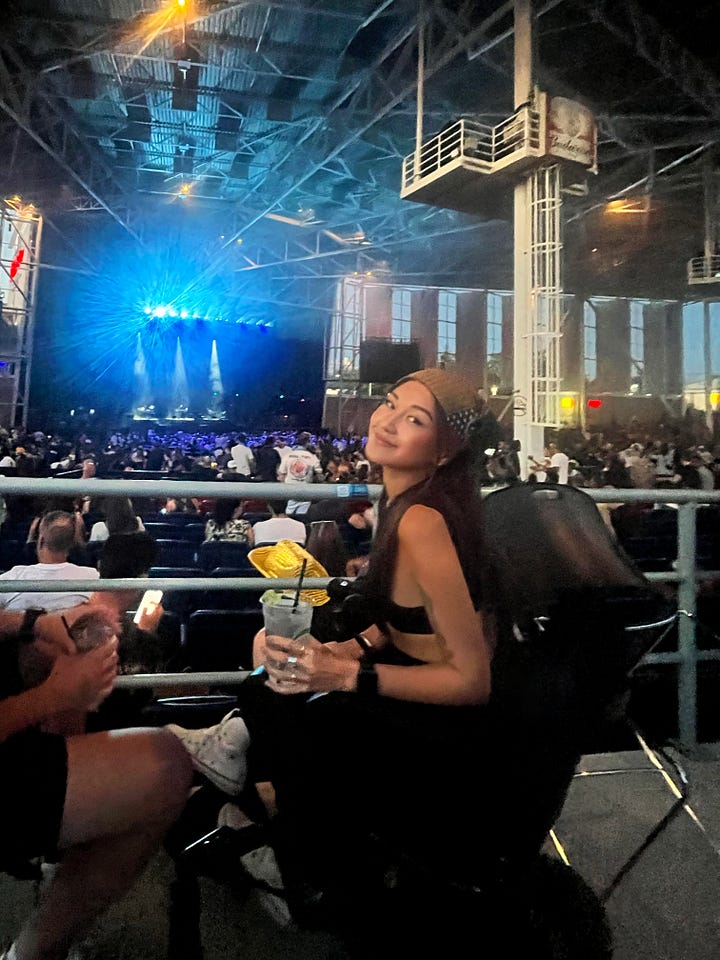
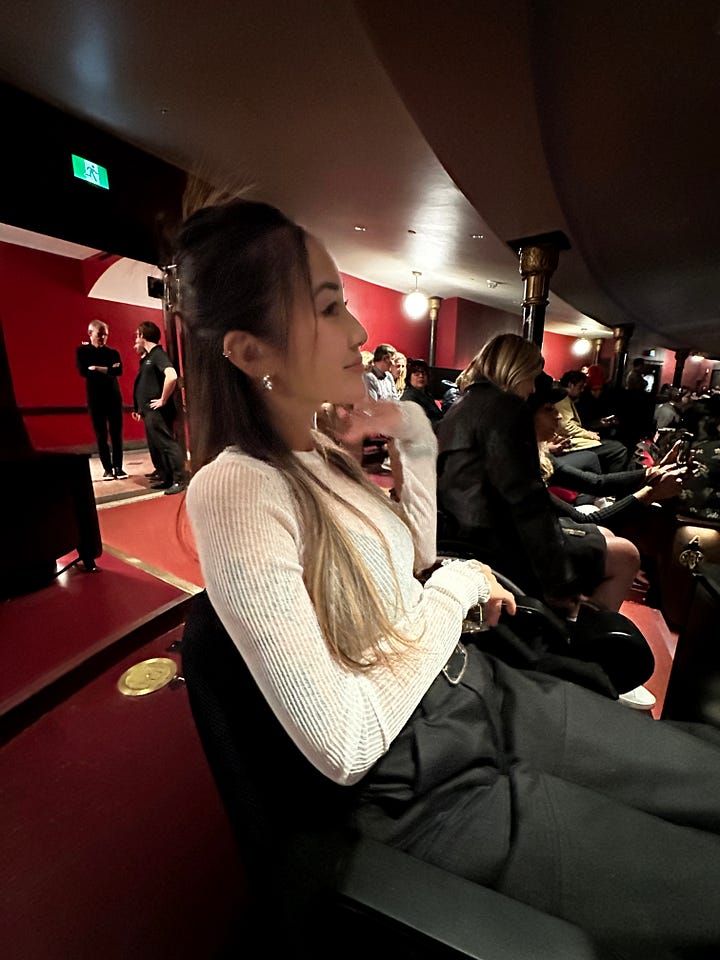
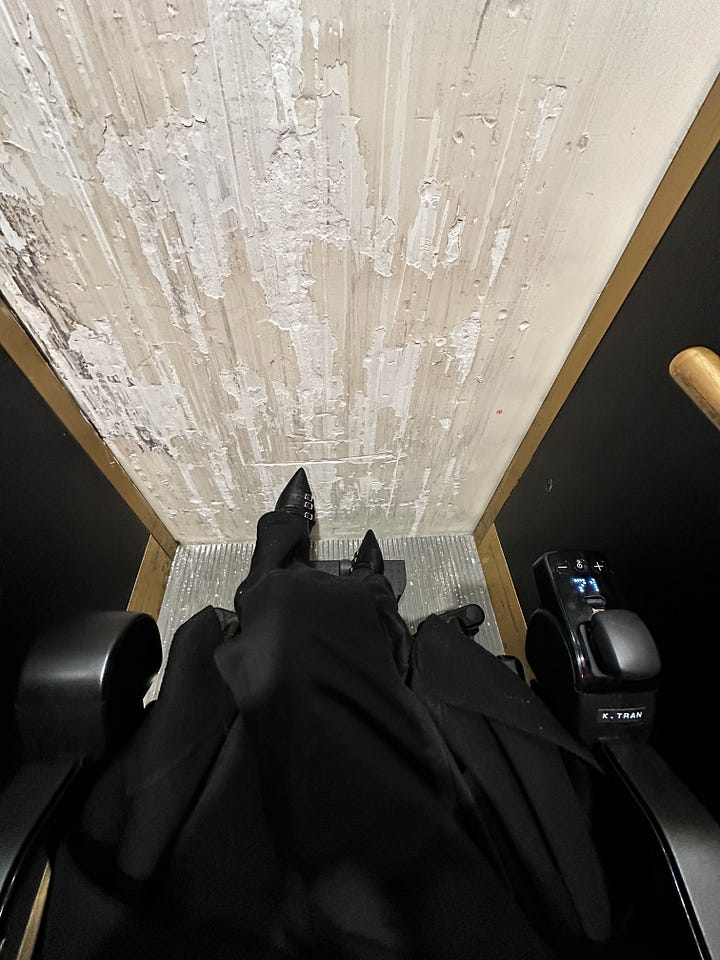
This isn’t an isolated experience. It’s a pattern. A frustrating, familiar dance with outdated systems and half-built solutions. Access is something we have to fight for, again and again, even when it’s supposedly available.
By the time I finally get through to someone who can help me on the phone, I feel immense gratitude and relief, but also tired because I know I’ll have to do this again for the next event and the one after that, over and over until there is a better way of doing these things. The burden is always placed on us—to advocate, to follow up, to stay polite, to stay fearful, to not give up.
Access shouldn’t be a scavenger hunt. It shouldn’t depend on who you get on the phone, how persistent you are, or whether someone decides your needs are worth accommodating. I shouldn’t have to memorize venues or have favourite spots just to get in.
I’m sharing this because so often, the labour of being disabled is invisible. It’s not just the physical stuff—it’s the endless admin. The emotional toll of being repeatedly sidelined or forgotten. The quiet calculations we make every day about whether it’s worth the energy to try.
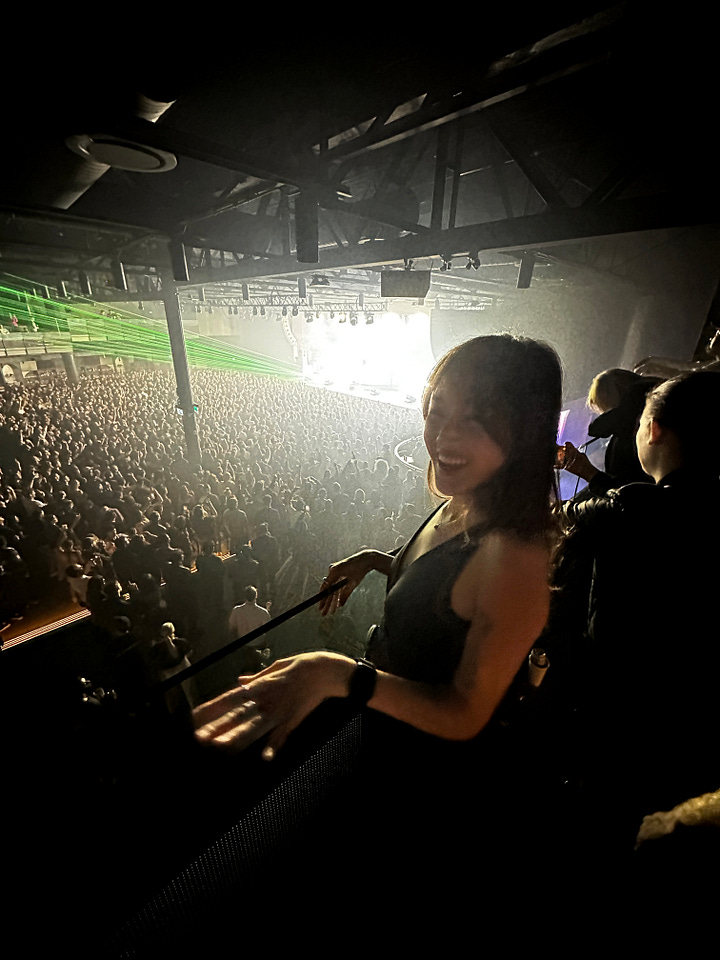
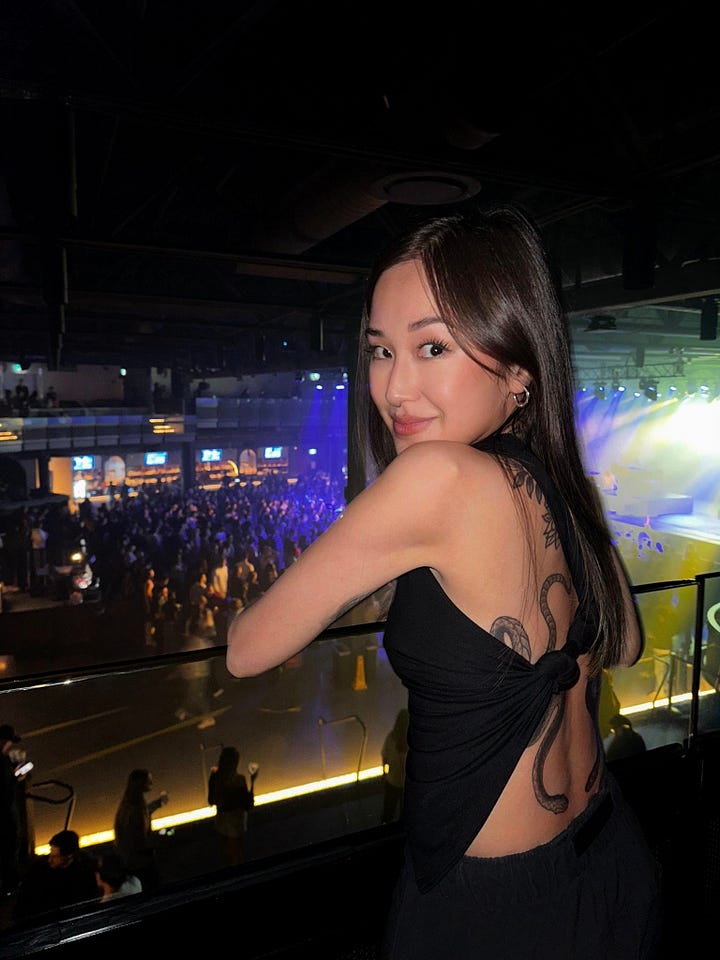
I’ve gotten better at playing this game over time, figuring out which venues to avoid, which numbers and emails to contact, and which phrases get a response. But just because I’ve learned the system doesn’t mean the system is working. It shouldn’t be this hard.
I love live music. I want to show up. I should be able to.
I shouldn’t have to fight this hard to get a seat.

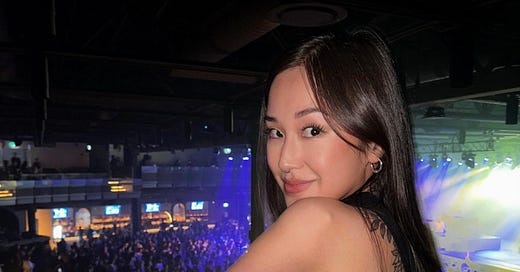


This is such a neat insight into what your experience is like for these type of events and venues. Super cool seeing all the different seating arrangements you've found yourself in, so this post was visuals aplenty.